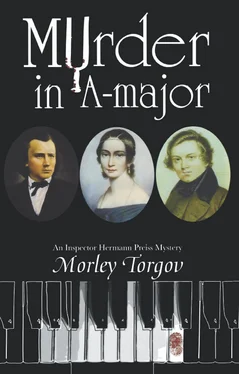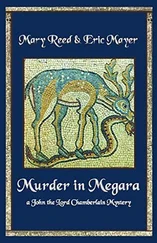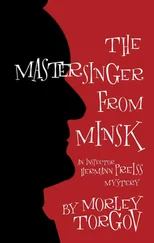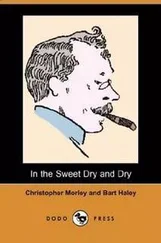Morley Torgov - Murder in A-Major
Здесь есть возможность читать онлайн «Morley Torgov - Murder in A-Major» весь текст электронной книги совершенно бесплатно (целиком полную версию без сокращений). В некоторых случаях можно слушать аудио, скачать через торрент в формате fb2 и присутствует краткое содержание. Жанр: Исторический детектив, на английском языке. Описание произведения, (предисловие) а так же отзывы посетителей доступны на портале библиотеки ЛибКат.
- Название:Murder in A-Major
- Автор:
- Жанр:
- Год:неизвестен
- ISBN:нет данных
- Рейтинг книги:5 / 5. Голосов: 1
-
Избранное:Добавить в избранное
- Отзывы:
-
Ваша оценка:
- 100
- 1
- 2
- 3
- 4
- 5
Murder in A-Major: краткое содержание, описание и аннотация
Предлагаем к чтению аннотацию, описание, краткое содержание или предисловие (зависит от того, что написал сам автор книги «Murder in A-Major»). Если вы не нашли необходимую информацию о книге — напишите в комментариях, мы постараемся отыскать её.
Murder in A-Major — читать онлайн бесплатно полную книгу (весь текст) целиком
Ниже представлен текст книги, разбитый по страницам. Система сохранения места последней прочитанной страницы, позволяет с удобством читать онлайн бесплатно книгу «Murder in A-Major», без необходимости каждый раз заново искать на чём Вы остановились. Поставьте закладку, и сможете в любой момент перейти на страницу, на которой закончили чтение.
Интервал:
Закладка:
“And are you at liberty to disclose who this collaborator is?”
“Unfortunately, there is no tactful way to tell you this. He is none other than Professor Friedrich Wieck…your father.”
I had expected this announcement to elicit from Clara Schumann some highly emotional response. And who would have blamed her at this point if, like a prima donna in some melodramatic opera, she had heart-wrenchingly sworn bloody revenge against the evildoers? Instead, after a full minute or so of silence, with incredible calmness, she said, “So you are completely satisfied that Hupfer has told you the truth about my father's role in all this?”
“When one has been in my profession long enough, one develops what people in your profession call perfect pitch. Hupfer was telling the truth.”
She paused again, then in that same unruffled manner, said, “So you will now travel to Endenich and arrest Robert.”
I found it strange that she put this in the form of a statement rather than a question. There was even a hint of resignation in her tone, as though the facts had emerged plainly in black and white: Who else but Robert Schumann would have had the reason, the opportunity, and the strength to murder Adelmann?
I was not at all prepared for her next remark. “That would be a grave mistake on your part, Inspector,” she said, her gaze intently fixed on me, “a very grave mistake.”
“How so?”
“Robert did not kill Georg Adelmann.”
“You know this for certain?”
“Yes.”
“You mean you have some opinion in the matter?”
“Not an opinion, Inspector. Call it knowledge.”
“Knowledge? Your own, or someone else's?”
“First-hand knowledge, Inspector. I killed Georg Adelmann.”
“I beg your pardon?”
“It was I who killed Adelmann.”
I said, “It is very noble of you, Madam Schumann, to want to protect your husband's honour, but the powerful blow that took Adelmann's life could not possibly have been administered by someone of your physical stature.”
She took this as an insult. “Look at these hands!” She extended her hands, the long fingers splayed. “Do you have any notion at all how strong a pianist's hands are? How strong our arms and wrists must be? Even our shoulder and back muscles? I choose to avoid pounding the keys the way Franz Liszt pounds them, but I assure you my hands and fingers are every bit as steely as any male's, pianist or otherwise. A single blow is all it took for me to dispatch Adelmann.”
“There were marks on his temple suggesting that whoever struck him-”
“Not ‘whoever’, Inspector. It was I who struck him-”
“-used a tuning fork or an instrument very much resembling-”
“Again I have to interrupt you, sir. The tuning fork you found is the instrument I used.”
“Hupfer's tuning fork?”
“Yes. Why do you find this so hard to accept?”
“How did you manage to acquire Hupfer's tuning fork? Don't ask me to believe that it suddenly materialized out of nowhere, madam. Tales of coincidence do not sit well with police inspectors.”
Clara Schumann gave me a faint smile. “Inspector Preiss, I would never insult your intelligence by offering you some fantasy about how it came into my possession.”
“The truth had better be simple. I have no time for anything else.”
“The truth is always simple, isn't it, Inspector? Think back, if you will. You recall, I mentioned that Willi Hupfer is a creature of rigorous habit. One might say his life is set in stone. You've seen how meticulous he is, everything in its place, a place for everything, as they say. And proud too. You've seen ample evidence of his pride. But pride leads to smugness, and smugness leads to carelessness, doesn't it?” I had the uncomfortable feeling that Clara Schumann's point wasn't confined to Wilhelm Hupfer, that she was aiming her barb at me as well.
“To answer your question fully about Willi's tuning fork, I have to take you back to the night of the musicale here in our house. The last thing Franz Liszt said as he was leaving was that the piano I'd played on was out of tune.”
“Yes, and you and your friend Brahms protested-rather vehemently, I must say-and continued to protest even after Maestro Schumann appeared on the scene and acknowledged that Liszt was right. Frankly, it was my impression that you and Brahms were chiefly concerned with allaying any suspicions about yourselves, and to hell with Dr. Schumann.”
You're half right, Inspector,” Clara Schumann said. “My denial was not aimed at allaying suspicions about me; rather, I was anxious to shield Johannes from suspicion. After all, when you consider Robert's temperament, it would not have taken much for him to conclude that Johannes was a participant in the conspiracy. And I say this despite Robert's deep affection for Johannes. So, yes, my protests were, as you put it, vehement. And with good reason.”
“But the tuning fork , Madam Schumann-”
“Bear with me. I mentioned that pride, smugness and carelessness inevitably follow one another. And here-” She reached for a sheet of stationery that lay on the lid of the Klems. “Here is proof.” She handed me the sheet. At the top, the printed letterhead read, “Wilhelm Hupfer, Master Piano Service Technician.”
“You will notice,” she said, “the date, which is the Saturday of the musicale. It is an itemized list of work done by Willi Hupfer that afternoon. This was one of Willi's many habits. After every visit, he would leave behind a detailed record of each item of service he'd performed, no matter how routine. It was his way of impressing us with his thoroughness. It was also his subtle way of attempting to make us feel guilty because he considered himself underpaid. His penmanship, like his workmanship, is impeccable, so you should have no trouble reading it.”
I began silently to read.
“No, Inspector,” she urged, “please read it aloud.”
I read: Klems exhibits premature wear and tear due to secondary quality parts and construction!
Cleaned keybed, polished pins, checked all hammers and tapes .
Tightened all action screws .
Polished action brackets .
Checked damper lever springs .
Regulated and eased keys wherever necessary .
Re-strung A above Middle C (original strings too slack to pull up) .
I looked up. “I'm no technician, but one question immediately jumps out of this report: isn't it curious that, for a piano that is supposedly cheaply constructed, among all eighty-eight keys and over two hundred strings the only strings, that required replacing were those for A above middle C?”
“That is not the only peculiar thing,” she replied. “Suppose one must order a new set of strings. The closest manufacturer of strings suitable for our Klems piano is in Berlin. It can take up to two weeks before such an order is delivered. So one must produce strings from scratch in an emergency. It is a highly skilled and time-consuming process. I've watched Hupfer make them. First, he takes a length of thin but very strong steel wire, hammers both ends flat and forms them into loops, then hooks the wire onto a spinning contraption, something like a woodcraftsman's lathe. Then he wraps a length of copper wire around the steel core and spins the two, feeding the copper one very deftly between his thumb and forefinger so that it spirals down the steel wire to form a covering. As you can appreciate, Inspector, piano wires don't grow on trees.”
“Which means Hupfer wouldn't have been capable of producing the new A strings on the spur of the moment,” I said.
“Exactly.”
“Which also means he must have planned to replace the A strings in advance… well in advance. Whether or not it needed restringing was beside the point. But I'm not sure if it was carelessness or just plain stupidity that made him refer to it in the list.”
Читать дальшеИнтервал:
Закладка:
Похожие книги на «Murder in A-Major»
Представляем Вашему вниманию похожие книги на «Murder in A-Major» списком для выбора. Мы отобрали схожую по названию и смыслу литературу в надежде предоставить читателям больше вариантов отыскать новые, интересные, ещё непрочитанные произведения.
Обсуждение, отзывы о книге «Murder in A-Major» и просто собственные мнения читателей. Оставьте ваши комментарии, напишите, что Вы думаете о произведении, его смысле или главных героях. Укажите что конкретно понравилось, а что нет, и почему Вы так считаете.












